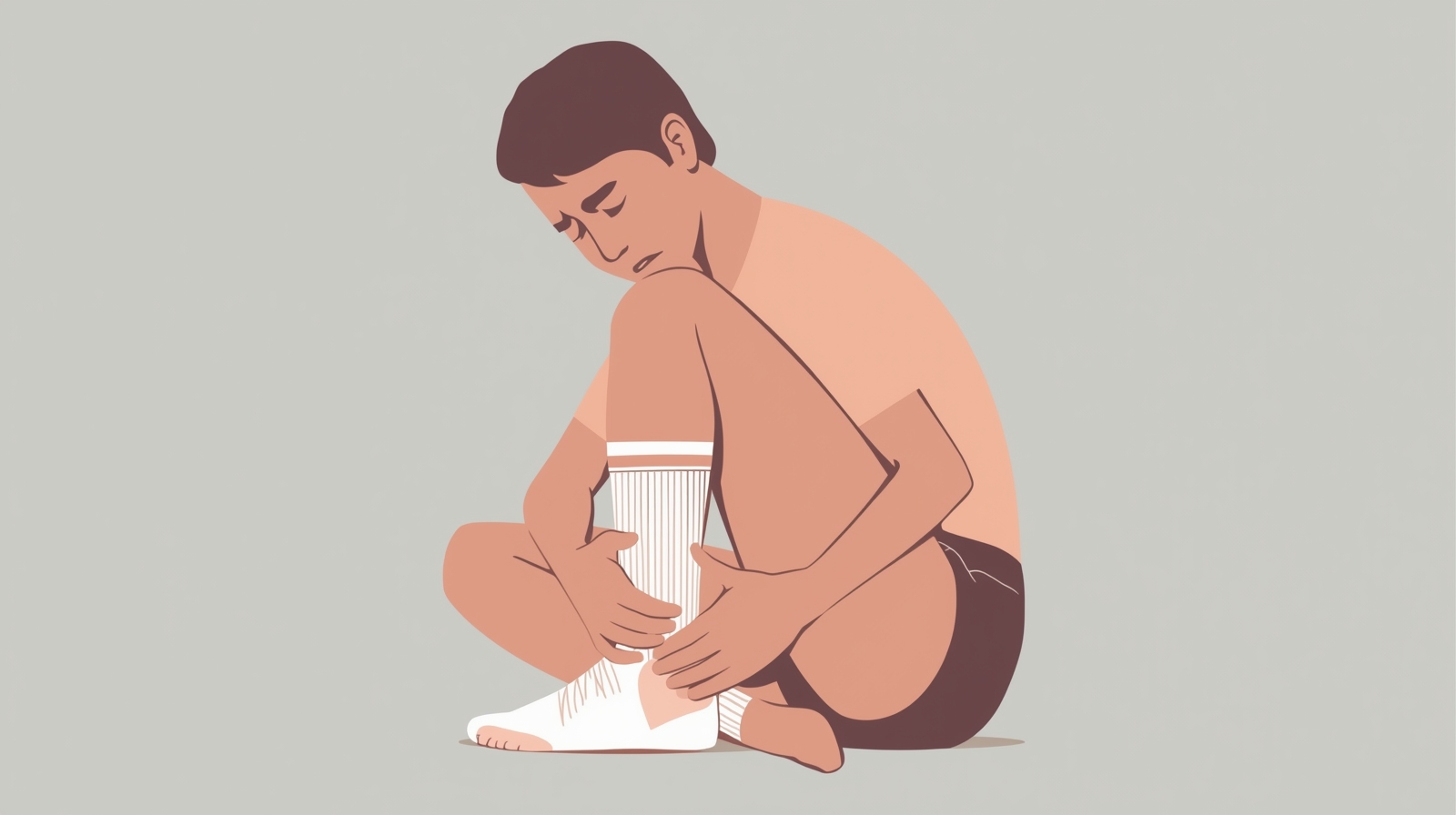
If you’ve ever woken up, stepped out of bed, and felt like someone had slipped a shard of glass under your heel, you know the cruel world of plantar fasciitis. It’s not just a “bad foot day.” It’s persistent, nagging, and often makes the simple act of walking feel like punishment. I’ve been there. And like many others, I went down the rabbit hole searching for relief, orthopedic shoes, insoles, stretching routines, night splints, and yes, specialized socks for plantar fasciitis.
Now, here’s the honest question: Can socks really help? At first, I didn’t believe it. Socks sounded too soft, too simple, to deal with a condition that made every step hurt. But after talking to podiatrists, testing different compression socks, and reading countless user stories, I realized something: the right socks can make a surprisingly big difference.
This article is not your typical dry buying guide. Instead, I’ll walk you through real experiences, expert-backed explanations, product reviews, pros and cons, and the kind of storytelling that makes you feel like we’re sitting in a café swapping foot pain survival tips.
What Are Socks for Plantar Fasciitis, Really?
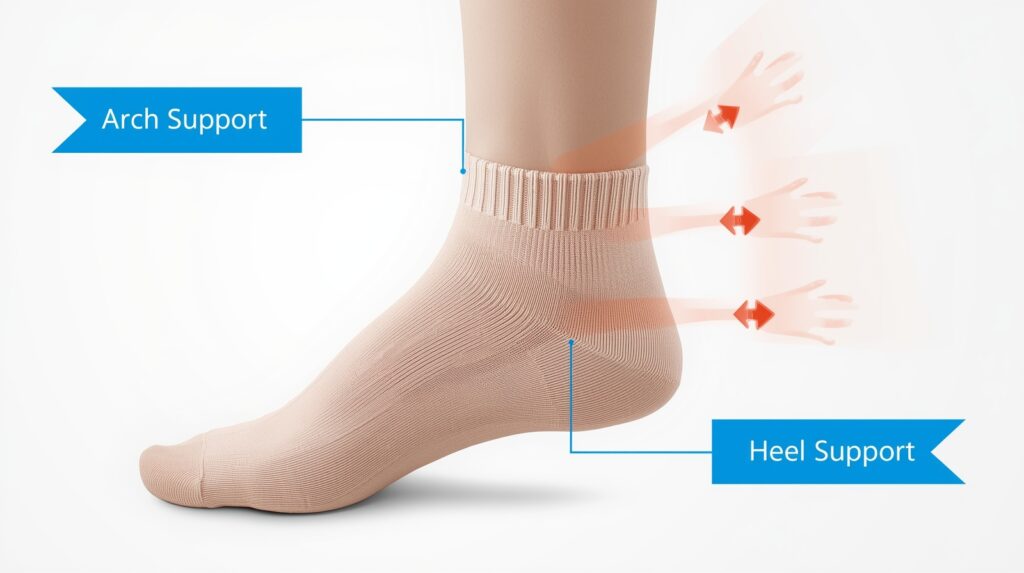
Socks for Planter Fasciitis
First things first, these aren’t just “thicker” or “softer” socks. They’re engineered, like tiny medical devices you slip onto your feet.
Compression design
They apply gentle, targeted pressure to your arch and heel, which supports the plantar fascia ligament (the tissue that’s inflamed in this condition).
Circulation boost
Increased blood flow means faster recovery and less morning stiffness.
Stability factor
Some socks mimic taping techniques that athletes use, giving your foot a bit more structure and reducing microtears.
Maybe This can Solve your Problem: 5 Best Socks for Flat Feet in 2025
“People underestimate socks. But for plantar fasciitis, a good compression sock can provide continuous micro-support throughout the day, which is different from insoles or splints that are often used only part-time.”
Podiatrist Dr. Emily Splichal
In other words, socks are the unsung heroes of plantar fasciitis management.
My First Encounter with Plantar Fasciitis Socks
Let me tell you a quick story.
When I first bought compression socks, I was skeptical. The pair looked ordinary, like something you’d wear for running. But the moment I pulled them on, I felt this snug embrace around my arch. Honestly, I didn’t expect much. Yet after wearing them for a full day at work, I noticed I wasn’t limping to my car in the evening.
It wasn’t a miracle cure. The pain was still there. But it was… muted. Like turning down the volume on an annoying background hum. That’s when I realized: small changes add up.
Factors to Consider Before Buying Socks for Plantar Fasciitis
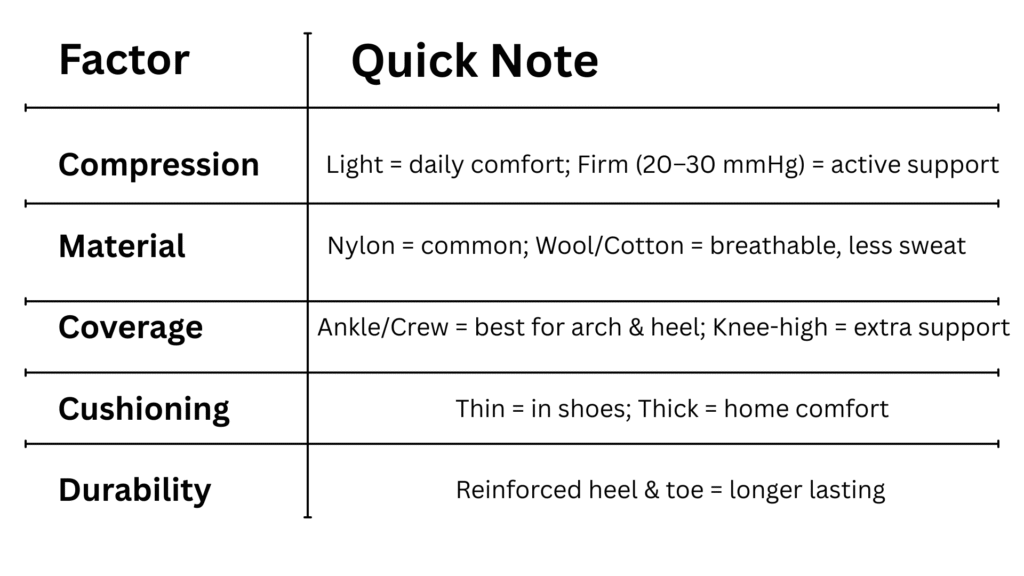
Buying any random pair won’t cut it. Here’s what really matters:
Compression Level
Light compression feels more comfortable for everyday wear, while firm compression (20–30 mmHg) works better for active support.
Material
Nylon blends are common, but merino wool and cotton blends add breathability and reduce sweating.
Coverage
Some are ankle-length, others knee-high. For plantar fasciitis, ankle or crew-length often works best since they target the arch and heel directly.
Cushioning
Thin for wearing inside shoes, thick if you want plush comfort around the house.
Durability
Socks wear out fast. Look for reinforced heels and toes, or else you’ll be shopping again in two months.
Best Socks for Plantar Fasciitis – Tried, Tested, and Compared
Now, let’s dive into specific products. I’ll mix up the review styles, sometimes quick comparisons, sometimes storytelling, because not all socks (or readers) are the same.
Check Price at Amazon
When people talk about plantar fasciitis socks, this brand almost always comes up. I ordered a pair in black, and here’s what stood out.
- Feel: The compression was firm but not suffocating. I could wear them during a 10-hour shift without feeling like my foot was in a vise.
- Performance: Reduced heel throbbing after long walks. Honestly, I didn’t expect that level of relief from just socks.
- Looks: Sleek, sporty design. Not embarrassing if you wear them in public
Why It’s Best:
If you’re on your feet all day—nurses, teachers, retail workers—these socks are like quiet bodyguards for your feet
Check Price at Amazon
Why It’s Best
Great entry-level plantar fasciitis socks, ideal if you’re curious but not ready to splurge.
I call these my “weekend socks.” They’re shorter, lighter, and easier to slip into sneakers.
Instead of giving a long breakdown, here’s how I’d sum them up in a “real user” way:
- Imagine your foot being hugged around the arch, but still free enough to move.
- They don’t scream “medical device,” so you can wear them casually.
- Perfect for jogs, errands, or even lounging.
What I Liked:
- Arch support felt targeted
- Affordable compared to some brands
- No sliding inside shoes
What Could Be Better:
- Not enough compression for severe cases
- Thinner fabric, so durability is questionable
Check Prices At Amazon
Why It’s Best:
Because it balances comfort and medical-grade compression better than most brands.
These felt different the moment I slipped them on, softer, almost luxurious. I wore them on a 4-hour flight, and surprisingly, I didn’t hobble off the plane like usual.
Instead of bullet points, let’s switch gears and tell you why people rave about these:
- The merino wool blend keeps your feet warm without overheating.
- Compression is graduated (tighter at the ankle, looser at the calf), which means circulation gets a natural push upward.
They double as travel socks. So if you’re someone who flies often and also battles plantar fasciitis, these kill two birds with one stone.
Check Prices At Amazon
Why It’s Best
If you’re active and refuse to quit running or hiking despite plantar fasciitis, these are your go-to socks.
This one’s for athletes. I wore them during a light run (yes, running with plantar fasciitis is risky, but sometimes stubbornness wins). The difference? My arches felt less like jelly and more like springs.
Check Prices At Amazon
When I first tried them, I had a weird moment of realization: my foot felt like it had invisible tape holding everything in place. The arch support is so well-targeted that it almost mimics professional taping techniques.
Highlights:
- No-slip heel tab
- Comes in different colors (yes, style matters)
- Comfortable even for all-day wear
The Catch:
- They run small, so sizing up is smart
- Some people may find them too snug initially
Why It’s Best:
Because it combines medical function with daily comfort—perfect balance.
Modvel Foot & Ankle Brace Socks
Not exactly full socks, but sleeves. Think of them as “supportive wraps” for your arches.
Strengths:
- Super lightweight, perfect for summer
- Easy to wear under regular socks
- Provides localized arch compression
Weaknesses:
- No cushioning (you’ll feel every floor texture)
- Not suitable for colder weather
Why It’s Best:
Great layering option. If you already have cushioned socks you love, these add targeted support underneath.
FAQs
Can socks alone cure plantar fasciitis?
No. They help manage pain and support healing, but you’ll still need stretching, proper shoes, and maybe insoles
Should I wear them at night?
Some people do, but night splints are usually more effective. Socks are best during the day.
How many pairs should I own?
At least 2–3, because washing and rotating is key to maintaining compression quality.
My Final Thoughts – Are They Worth It?
Here’s the deal. If someone told me years ago that socks could change my relationship with plantar fasciitis, I would have laughed. But after months of wearing them, here’s my honest verdict: they don’t cure the problem, but they sure make life easier.
Think of it like this: wearing the right socks is like putting shock absorbers on a bumpy road. The bumps (your plantar fasciitis) don’t disappear, but the ride becomes bearable.
So, should you invest in a pair?
- If you’re on your feet all day: absolutely.
- If your pain is mild: try ankle-length compression socks first.
- If you’re an athlete: go for the high-performance brands.
At the end of the day, it’s not about socks being magical. It’s about small layers of support—literally—that add up to noticeable relief.
My Final Thoughts – Are They Worth It?

Here’s the deal. If someone told me years ago that socks could change my relationship with plantar fasciitis, I would have laughed. But after months of wearing them, here’s my honest verdict: they don’t cure the problem, but they sure make life easier.
Think of it like this: wearing the right socks is like putting shock absorbers on a bumpy road. The bumps (your plantar fasciitis) don’t disappear, but the ride becomes bearable.
So, should you invest in a pair?
- If you’re on your feet all day: absolutely.
- If your pain is mild: try ankle-length compression socks first.
- If you’re an athlete: go for the high-performance brands.
At the end of the day, it’s not about socks being magical. It’s about small layers of support—literally—that add up to noticeable relief.


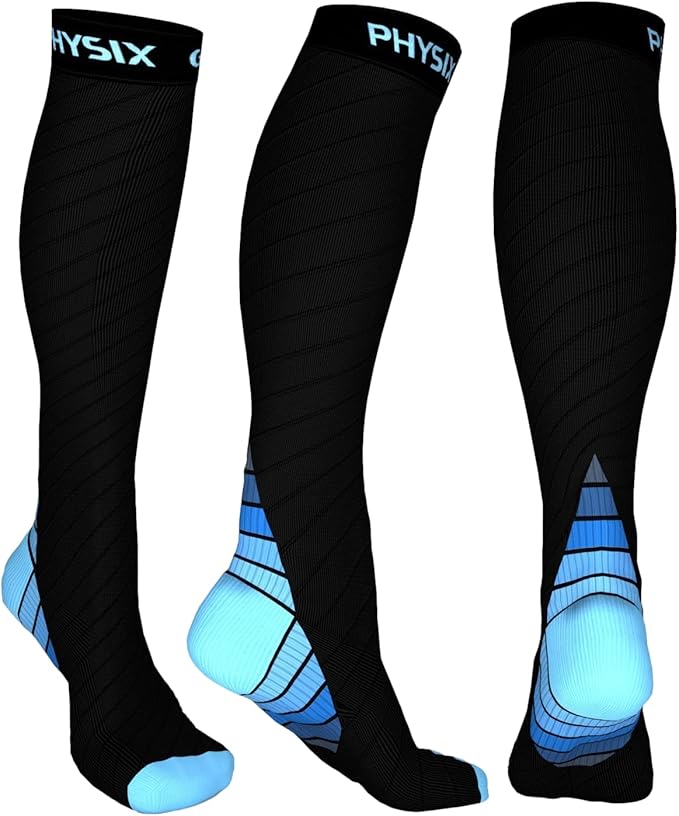
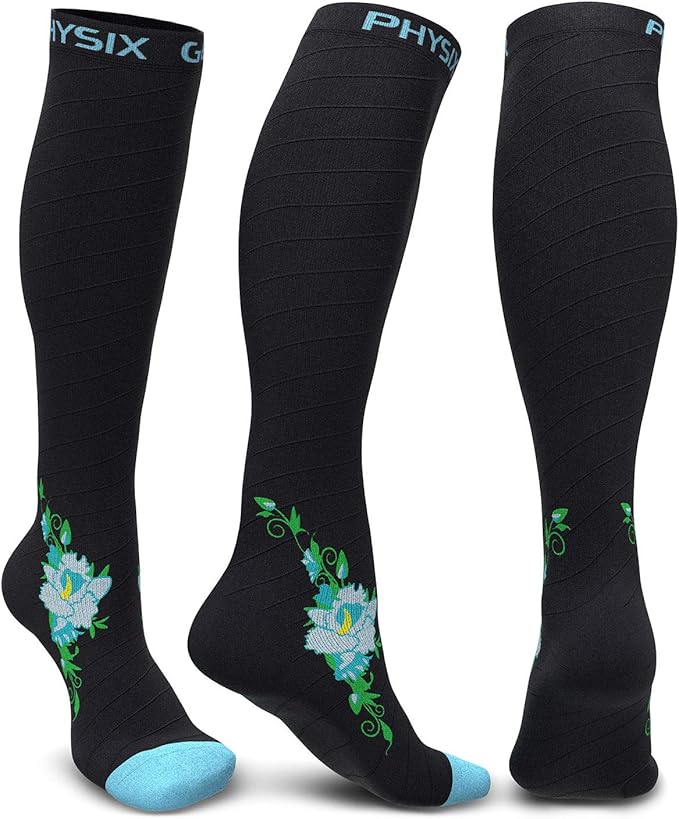











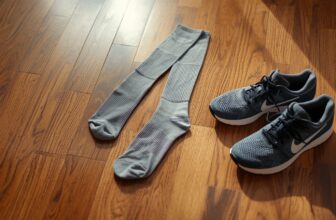
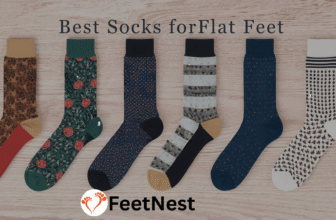
[…] Maybe This can Solve your Problem: 6 Best Socks for Plantar Fasciitis: A Deep-Dive Review […]